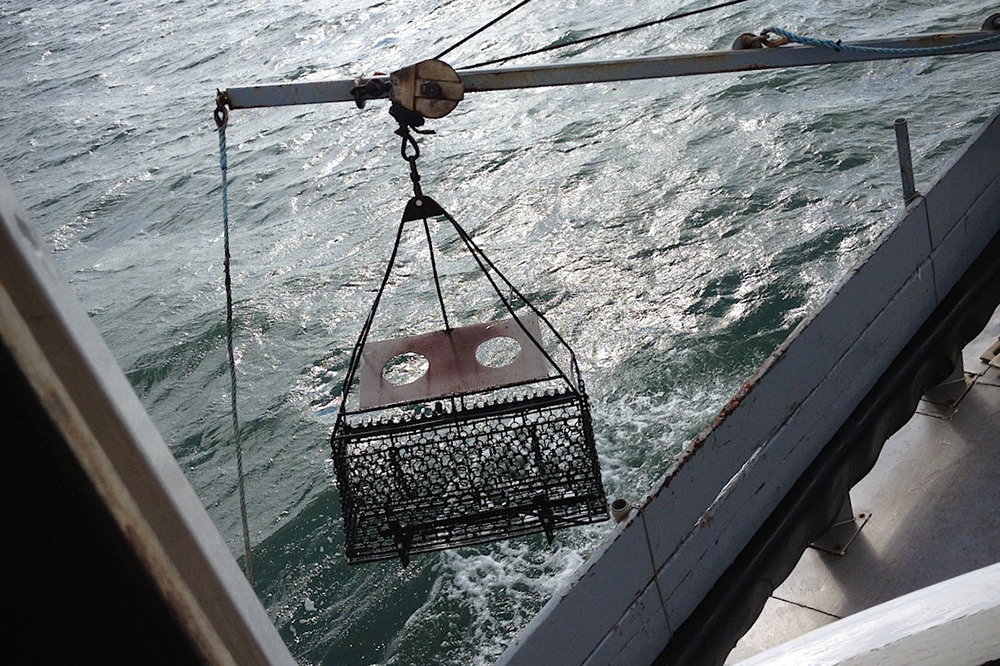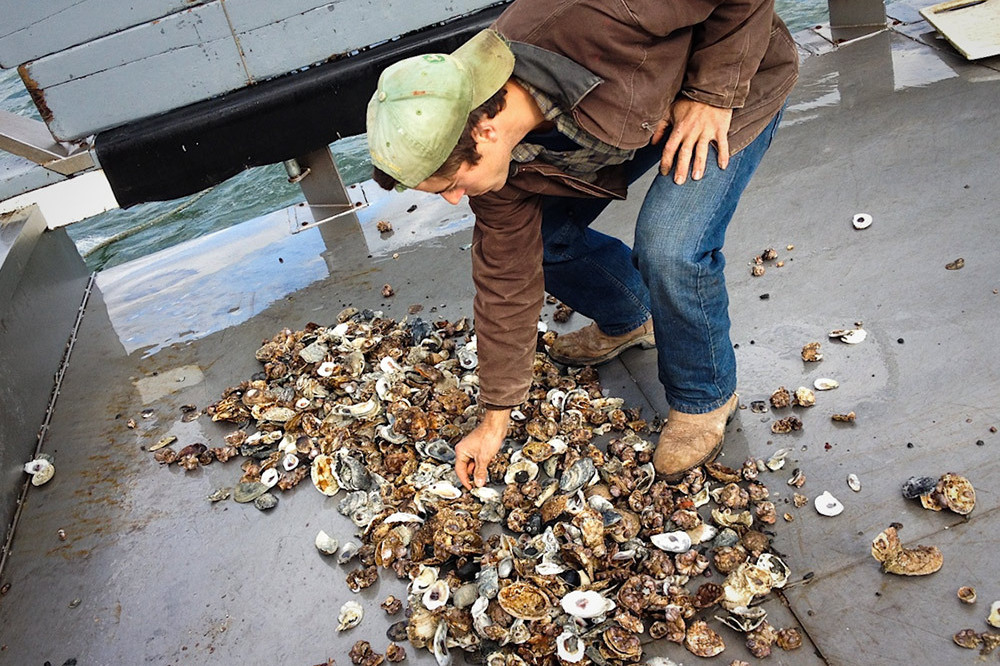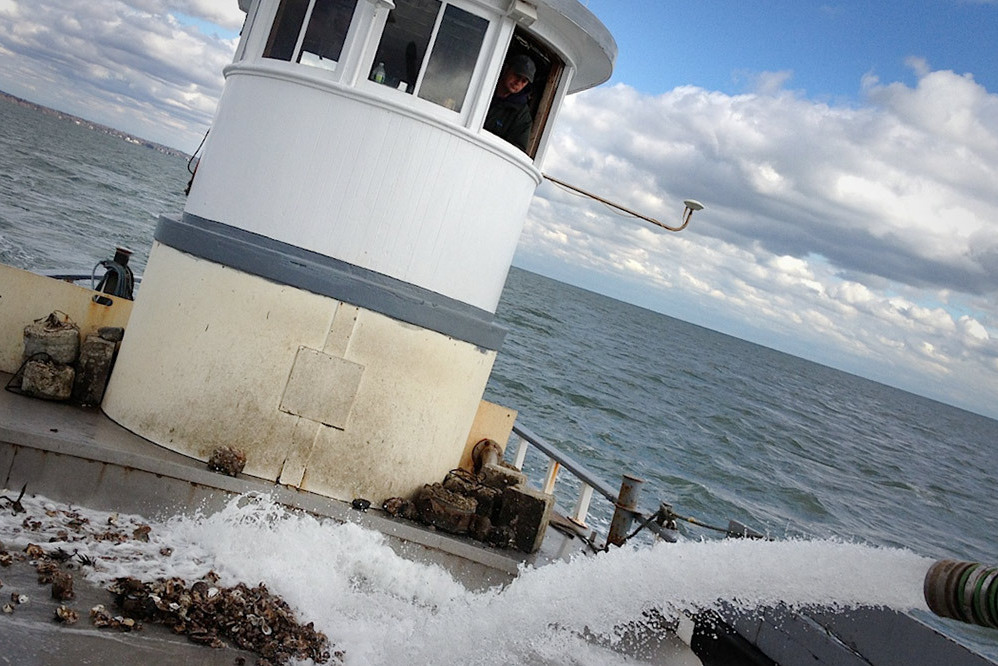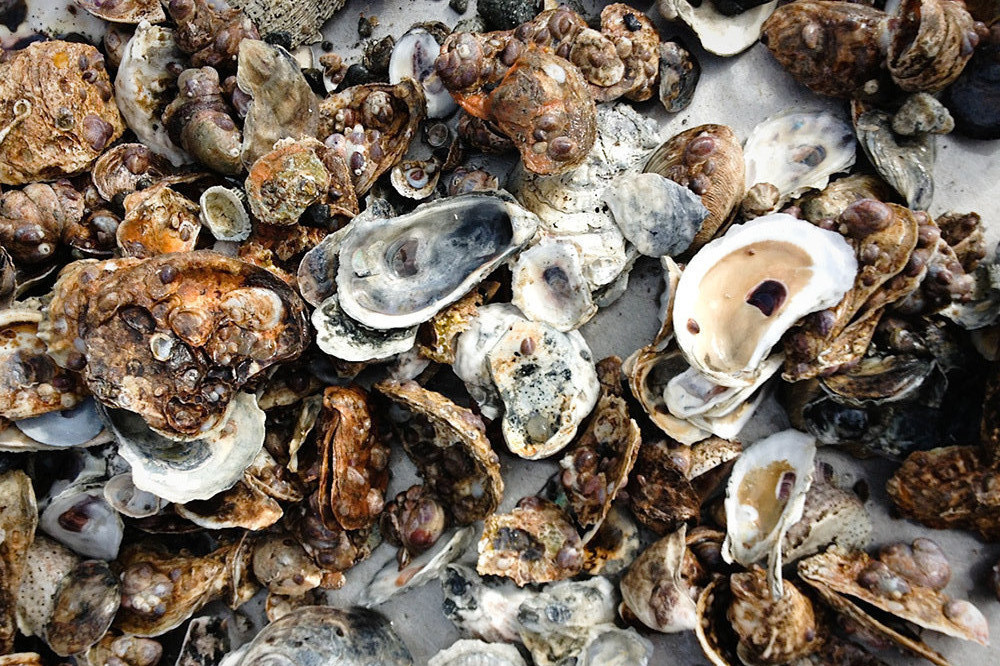-

Hide caption Norman Bloom takes his boat out to meet his son, Jimmy, whose boat is idling over the company's oyster beds, about a mile offshore from Norwalk. They worry that the waves and the turbulence may have suffocated the oysters under silt. They could have been banged around, which would break them. And they may have just cracked open and died, Jimmy fears.
Jeff Cohen for NPR
-

Hide caption Jimmy Bloom lowers two cages with rakes on the front to drag the bottom of the sound, about 30 feet below. Then he brings it up and dumps it on deck to check the oysters. "You know, if the storm hit, you'll see the shells will be all polished or the oysters could be all gapped. So it would be nothing to lose 80 to 90 percent of your oysters," Norman Bloom says, looking on.
Jeff Cohen for NPR
-

Hide caption What they pull up is discouraging. Normally, 30 seconds under water would bring up a cage full of mostly healthy oysters. This time, Jimmy Bloom pulls up a cage that is barely one-third full. And it's haul is a mix of broken, chipped, meatless oysters.
Jeff Cohen for NPR
-

Hide caption They're not out here to farm, they're just here to survey. So the Bloom men pump seawater onto the boat and wash the shells back into the water.
Jeff Cohen for NPR
-

Hide caption The loss won't put them out of businesses, but it will make life harder and leaner as they try to both keep up with demand and rebuild what was destroyed. "We just pick up the pieces, start sorting the mess out, and move on. Take it from there. Not much you can do about it, you just go to work the next day," Jimmy Bloom says.
Jeff Cohen for NPR
Connecticut Gov. Dannel Malloy wrapped up a post Hurricane Sandy news briefing earlier this week by talking about sewage discharges into Long Island Sound. "Suffice to say in the immediate time being, no one should eat the clams or oysters," he said.
That's right. Because of water quality issues, the state put a temporary stop to oyster farming, but that's usually a short-term thing and it happens fairly regularly after a big storm.
But Hurricane Sandy may have had a far more lasting impact on some in the oyster industry in terms of pure destruction of the oyster's fragile habitat.
Norman Bloom and his son, Jimmy Bloom are oyster farmers at Norm Bloom and Son in Norwalk, Conn. Their family has been raising oysters for three generations now on 2,000 underwater acres of oysters in Long Island Sound. And, on Wednesday, two days after the storm, I tagged along as the Blooms were finally able to get out on the water to assess the damage.
Check out the slideshow above to see what they found.
Cohen is a reporter with WNPR in Connecticut.



 12:45 PM
12:45 PM




